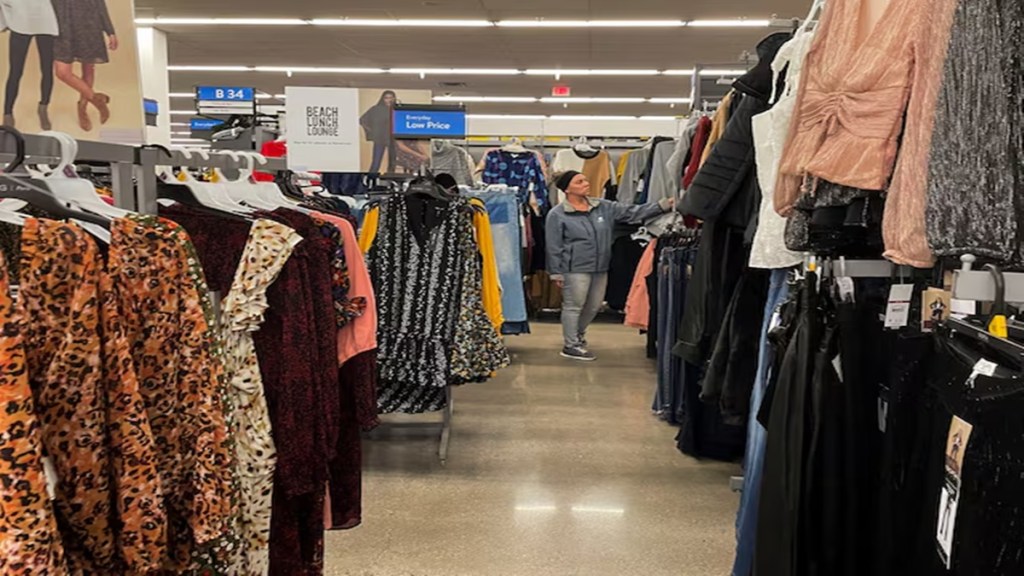Value apparel retailers reported stronger revenue growth in comparison to premium retailers in FY25 at a time when discretionary spending had been weak, especially in urban areas, data showed. While most premium retailers are hoping demand conditions will improve in FY26 on the back of fiscal and monetary policy measures, some experts say that it may show up with a lag.
Firms such as Vishal Mega Mart, V2 Retail, V-Mart Retail, and Baazar Style Retail, all value fashion retailers reported double-digit revenue growth between 17% and 62% in FY25, even as premium retailers such as Vedant Fashions and Arvind Fashions posted single-digit revenue growth (1-8%) and Aditya Birla Fashion saw a sales decline of 47.5%. Same-store sales growth (SSG) for most of these value retailers was in the region of 12-29% in FY25, while SSG for premium retailers remained largely flat.
Shoppers Stop, the country’s oldest department store chain, posted a 14.3% revenue growth in FY25 versus 9.2% in FY24. This came on the back of an aggressive store rationalisation strategy aimed at improving sales and profitability, sector experts said. Trent, best-known for its Zudio value apparel chain, while posting a nearly 39% topline growth in FY25, actually saw revenue growth slide from the 50% reported in FY24, amid growing competition. A high base also contributed to Trent’s FY25 sales growth rate being lower than the previous year, sector experts said. Trent’s SSG moderated to mid-single-digit levels (in FY25) from double-digit levels seen earlier.
Last week, Trent’s management, led by MD P Venkatesalu, had guided for a 25% compound annual growth rate in terms of sales for the next five-to-10 years in its investor meet. The company said it was planning to grow sales through expansion of stores and tapping adjacent categories as well as improving profitability through cost control measures.
At a broader level though, analysts as well as companies point to a wider retail slowdown in large urban centres for premium retailers reporting weaker topline numbers versus value retailers in FY25. Global uncertainties and the need to keep non-essential expenditure under control have led to a slowdown in sales for premium retailers. In contrast, value retailers are seeing aspirations grow in tier 3 and tier 4 markets, contributing to their growth.
“There is a shift happening from unorganised to organised retail in small towns,” Lalit Agarwal, managing director, V-Mart Retail, said. “Consumers here are finding it convenient to shop at these locations, which is driving growth,” he said.
Gautam Duggad, head of research and director, institutional equities at brokerage Motilal Oswal, says that the shift from unorganised to organised retail has been driven in part by private label penetration as well as accelerated store expansion by retail companies in small cities.
“There is a continued shift happening from unorganised to organised retail, which has increased in the last few years. At the same time, deeper private label penetration as well as rising aspirations in smaller markets is contributing to growth,” he said.
Gunendra Kapur, MD & CEO, Vishal Mega Mart, says that his company’s approach remains centered on deepening market penetration and strengthening its private label portfolio. Private labels contributed 73.1% to overall revenue of Vishal Mega Mart in FY25, up from 71.8% in FY24, Kapur said.
The company operates 696 stores across 458 cities in the country, with a plan to add about 90 stores in FY26, largely in small cities.
